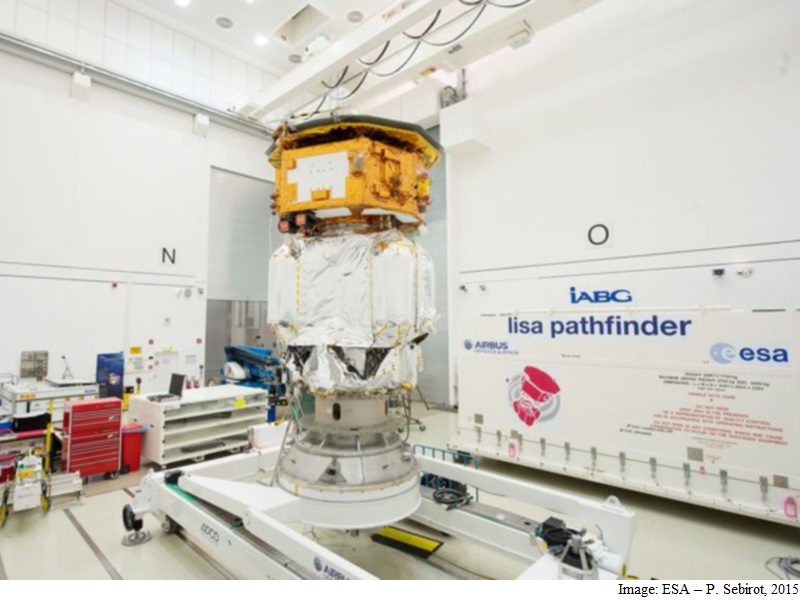
A new spacecraft which will help in the search for gravitational waves is setting off for South America on its final earthbound journey before heading to space in November.
A team from the University of Glasgow’s School of Physics and Astronomy played a key role in developing and building the Lisa Pathfinder, the University said in a release on Tuesday.
The Lisa Pathfinder spacecraft is the first part of an ambitious European Space Agency (ESA) research project with contributions from 14 different European countries and the US.
It will study the ripples in spacetime caused by massive astronomical events. The existence of these ripples, known as gravitational waves, was predicted by Einstein’s Theory of General Relativity but they have not yet been detected on earth by any sensors built to date.
The ESA partners believe that the best way to detect the extremely faint ripples is to place multiple highly sensitive detectors in the vacuum of space, where they will be free of the Earth’s vibrational interference.
Lisa Pathfinder will test new detector technologies which will be used in eLisa, the planned full-scale gravitational wave detector. The spacecraft has passed all its final tests and will start its final earthbound journey when it is shipped to the spaceport in Kourou, French Guiana tomorrow.
In November, the spacecraft will set off from earth atop a Vega rocket, an expendable launch system developed by the Italian Space Agency and the European Space Agency.
It will be heading towards the Lagrange Point L1, a point in space between the earth and the sun where interference from each is minimised.
“The wait is nearly over. After an immense amount of hard work, the first major step towards spaceborne gravitational wave astronomy is about to take place,” said Harry Ward, who leads the University’s Lisa Pathfinder team.
“It’s a tremendously exciting achievement and we’re pleased and proud to have been involved from the start.”
The payload of Lisa Pathfinder contains two floating gold/ platinum cubes that, ideally, will move completely free of any disturbances. A laser system monitors the separation between them with exquisite precision looking for tell-tale movements caused by any tiny stray forces.
A team in the Institute for Gravitational Research at the University of Glasgow developed and built this novel meteorology system – called a laser interferometer. Its performance is quite outstanding: it can detect distance changes as small as 10 picometres, or one hundred millionth of a millimetre.
[“source-gadgets.ndtv”]
